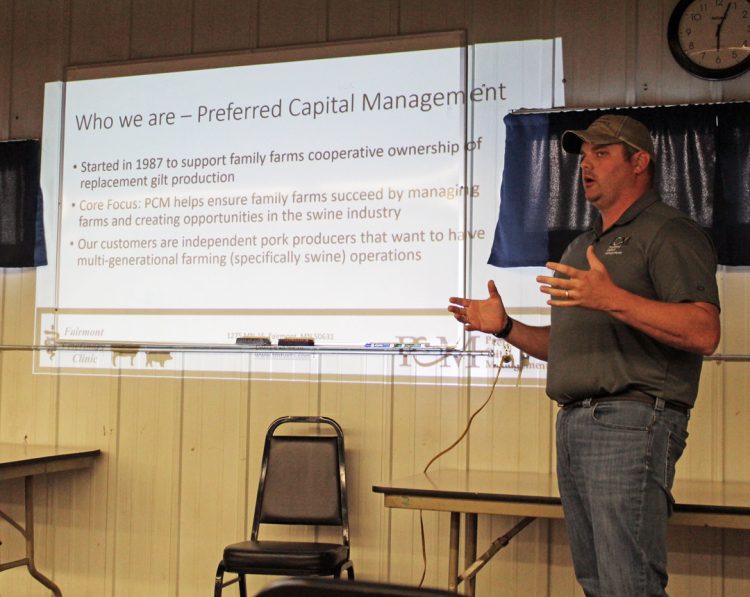Swine farm informational hearing answers questions


Shamus Brown, Preferred Capital Management, a division of Fairmont Veterinary Clinic, gave a brief overview of the plans for Blue Hills Swine Facility, before time for questions. M...


Shamus Brown, Preferred Capital Management, a division of Fairmont Veterinary Clinic, gave a brief overview of the plans for Blue Hills Swine Facility, before time for questions. M...